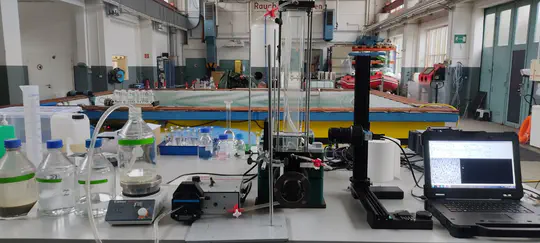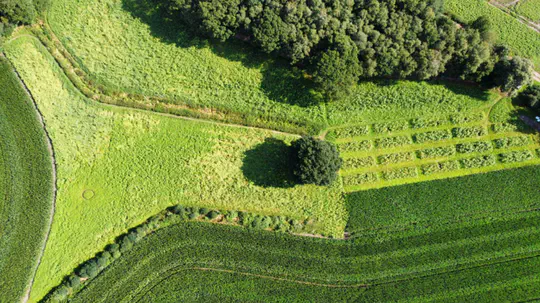VGM
Doctoral Student in Marine Science
University of Gothenburg Kristineberg Center for Marine Research and Innovation
Biography
The ocean’s vastness and complexity serve as a constant reminder of the humility we must embrace as scientists, and it is this humility that compels us to seek out more, for learning is lifelong, and lifelong is learning. I am a Doctoral condiate at the Department of Marine Sciences, University of Gothenburg. My research currently focuses on understanding the impact of anthropogenic disturbances, particularly bottom trawling and deep sea mining, on the deep sea sediment dynamics. Such acitivities significantly alter the natural sediment aggregation and transport processes, influencing spatial and temporal variation in sediment properties such as density, size distribution and settling velocity, ultimately dictating the residence time of the thus forming sediment plumes. My research aims to investigate the formation and behavior of sediment plumes and fluid mud layers, exploring their implications across four key areas (1) physico-chemical controls on fluid mud formation, (2) interaction with seafloor topography and transition to gravity currents, (3) ecological consequences for benthic communities, and (4) impacts on seabed carbon remineralization and sequestration. Through an interdisciplinary approach integrating geological, physical, and biological perspectives, I seek to enhance our understanding of sediment transport mechanisms in the deep-sea.
- Deep-sea sediment dynamics
- Marine biogeochemistry
- Deep-sea monitoring technology
- Carbon Sequestration
PhD Marine Sciences, 2028
University of Gothenburg
MS Earth Sciences, 2024
Dartmouth College
BSc Earth and Environmental Sciences, 2022
Jacobs (Constructor) University Bremen
Experience
- Plan and conduct microcosm experiments (ship-board as well as roller tank experiments in laboratory) and mesocosm experiments to understand the effect of lithogenic mineral dust on particle aggregation and carbon flux in the surface ocean.
- Understand the dynamics of organo-mineral floc formation and its impact on carbon export from the surface ocean.
- Methodology: Particle analysis, Spectrophotometry, Microscopy, Solid Phase Extraction, Mass Spectrometry
- Carry out field sampling for soil pore water and lysimeter samples, and prepare nutrient, cations, isotope, DIC and Alkalinity samples for measurement on a weekly basis.
- Estimate the critical shear velocity of Olivine sample by the implementation of a Gust chamber for simulating boundary layer shear stress conditions to determine the regimes to carry out a potential Enhanced weathering project.
- Sediment characteristics and dynamics analysis with the aid of instruments such as LISST-100X, Cameras, Aqualogger, and experimental set up involving water flume, Water-column simulator, and settling column.
- Analysis of datasets for particle size distribution and settling velocity using Python, MATLAB and Image analysis using ImageJ Fiji software.
- Preparation of bottles for sample handling and processing, following certain acid-bath/wash and GEOTRACES protocol as needed.
- Setting up ICP-MS and ICP-OES and sample preparation.
Projects
![Bacteria-Clay interactions in the ocean [Clay, Carbon, Oceans]](/project/claycarbon/featured_hu72b8aa0751273a997f1def8c0f70fa05_270736_540x0_resize_q75_h2_lanczos_3.webp)


Research Cruises
Skills
LISST, Aqualogger turbidity sensor, Camera
IMS, ICP-MS, ICP-OES, AdCS-Voltammetry
Roller tanks, ship-board microcosm & field mesocosm experiments, Settling column and particle camera, Gust/Benthic Chamber, and Water column simulator
CTD, Tow-fish, Sediment corer (gravity and Multicorer), plankton net, turbidity sensor and fluorometer, Multibeam and echosounders
Deck deployment and reviving of various instruments, drone and photogrammetry, pre-cruise planning and preparation.
Education
Awards:
- Dartmouth Graduate Student Fellowship {2022-Present} |
- Guarini School of Graduate and advanced studies travel award (ASLO-ASM'23) |
- Dartmouth GSC student support fund (AGU-OSM'24)
Awards:
- Dartmouth Graduate Student Fellowship {2022-Present} |
- Guarini School of Graduate and advanced studies travel award (ASLO-ASM'23) |
- Dartmouth GSC student support fund (AGU-OSM'24)
- Grade: 1.20 - German Grading Scale
- Awards: Jacobs Merit Scholarship {2019-2022}
Contact
- vigneshgokulmenon@gmail.com
- 8606985735
- Kristineberg 566, Fiskebäckskil, 45178













![Nickel concentration in the Rainbow hydrothermal vent using voltammetry [RainbowPlume]](/project/rainbow/featured_hu4991e368977337883694045527247670_220900_540x0_resize_q75_h2_lanczos_3.webp)